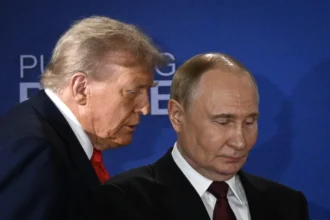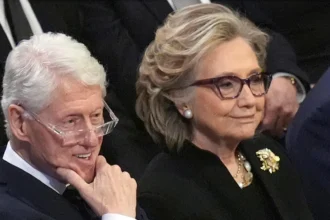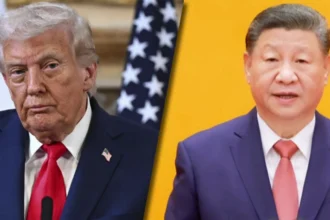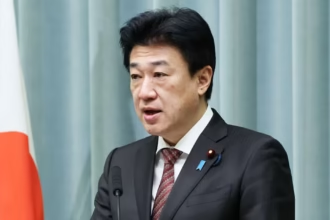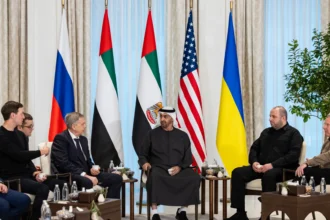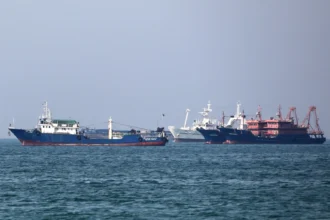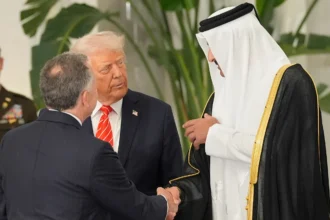Australia’s Prime Minister is preparing to meet President Donald Trump in what is shaping up to be a high-stakes discussion focused on rare earth minerals, a critical component of modern technology and national security. The meeting highlights the growing global significance of rare earths, which are essential for everything from electric vehicles and wind turbines to military systems and advanced electronics.
As global demand for these strategic materials accelerates, Australia is positioning itself as a key supplier outside of China, the dominant producer, while the U.S. seeks secure supply chains to reduce dependency on Chinese exports. Analysts say the talks could have far-reaching implications for trade, defense, and climate technology.
Rare Earths: The Strategic Commodity
Rare earth elements (REEs) are a group of 17 metals crucial for high-tech manufacturing, clean energy, and defense applications. China currently controls over 70% of global rare earth production, raising concerns among U.S. and allied policymakers about supply vulnerability.
Key uses of rare earths include:
- Electric vehicle motors (neodymium, dysprosium)
- Wind turbines and renewable energy technologies
- Consumer electronics like smartphones and laptops
- Guidance systems and defense applications
The geopolitical leverage offered by rare earths has made them a central issue in U.S.-China trade tensions, prompting nations like Australia to become strategic partners for the United States.
Australia’s Growing Role
Australia is home to significant rare earth deposits, with mines in Western Australia and Queensland supplying critical elements to global markets. Over the past decade, the country has ramped up production capacity, aiming to become a reliable source for allies concerned about Chinese dominance.
The Australian government has also invested in:
- Processing facilities to convert raw ores into high-purity materials
- Joint ventures with U.S. companies to establish secure supply chains
- Research and development for sustainable extraction and recycling
Experts suggest that Australia’s leadership in the rare earth sector could position it as a geopolitical partner in the U.S.-China rivalry, providing leverage in trade and security negotiations.
Why the Trump Meeting Matters
The upcoming meeting between Australia’s Prime Minister and Trump is unusual, given Trump’s departure from office, but his continued influence in U.S. politics makes the dialogue strategically significant. Key topics likely to be discussed include:
- Securing stable rare earth supply chains for U.S. technology and defense industries
- Investment and joint ventures between American and Australian firms in mining and processing
- Tariff and export control policies to protect strategic minerals from global disruptions
- Collaboration on clean energy technologies, including EV batteries and wind power
Analysts say Trump’s interest in rare earths aligns with his broader economic agenda of strengthening American manufacturing and reducing dependency on foreign sources, particularly China.
Geopolitical Implications
The Australia-U.S. discussions over rare earths carry broader geopolitical significance:
- Countering China’s influence: By securing Australian rare earths, the U.S. can reduce strategic vulnerabilities and diversify supply.
- Trade leverage: Rare earths could become a bargaining chip in broader trade negotiations, both with China and within alliances.
- Defense readiness: Access to these metals is essential for military technology, including missiles, radar, and electronic warfare systems.
The meeting could also influence regional dynamics in the Indo-Pacific, as other allied nations consider their own roles in rare earth supply and defense cooperation.
Industry and Market Reactions
Investors and industry observers are closely monitoring the potential outcomes of the talks:
- Rare earth stocks in Australia have seen price gains amid speculation of increased U.S. investment and strategic agreements.
- Companies involved in mining, processing, and recycling may benefit from government-backed partnerships or contracts.
- Analysts warn that geopolitical tensions could cause supply volatility, affecting prices of magnets, batteries, and other REE-dependent products.
“This meeting underscores the strategic value of rare earths. Australia has become a crucial ally for countries seeking secure, non-Chinese supply,” said a commodities analyst.
Challenges Ahead
While the meeting presents opportunities, several challenges could complicate agreements:
- Environmental concerns: Rare earth extraction is resource-intensive and often generates hazardous waste. Regulatory compliance will be essential.
- Market volatility: Global demand and Chinese production policies could impact pricing and long-term contracts.
- Political risks: Cross-border deals may face scrutiny in both countries, particularly around foreign investment in strategic sectors.
- Technological bottlenecks: Processing rare earths into high-purity materials requires advanced infrastructure, which is limited outside China.
Conclusion
The upcoming Trump-Australia dialogue over rare earths highlights the intersection of geopolitics, trade, and technology in the 21st century. As global reliance on high-tech and clean energy solutions grows, securing stable and diversified sources of these strategic metals has become a national security priority for both the U.S. and its allies.
For Australia, the meeting represents an opportunity to strengthen its role as a global supplier, attract investment, and gain geopolitical leverage. For the U.S., it is a chance to reduce strategic dependencies and secure supply chains critical for economic and military resilience.
The outcome of these discussions could reshape rare earth markets, influence global supply chains, and alter the balance of power in technology and defense sectors for years to come.




